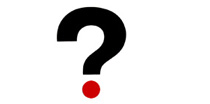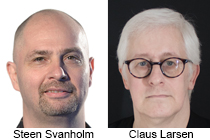Using 911facts.dk

How do you get the most out of this site?
Truth Movement
Publications
Booking

We are available for booking a lecture or a workshop here.

Belief in the official account
This is incorrect. We have neither a belief in the official account or in other explanations of the terror attack on September 11, 2001. We have set ourselves basically two tasks, on 911facts.dk, in the lectures we give, and in the debate we participate in, typically on the Internet.
- We collate and organize a large sample of the documentation publicly available and make it accessible to all interested parties. The documentation also comprises of publications that point to other explanations than the official one. These can be found under “Conspiracy theories”, given that neither recognized scientific or legal evidence have been provided for the conclusions.
- We debate and write articles about those alternative claims we encounter and find relevant to delve into. Both the debates and the articles investigate whether the claims are true and thus challenge the official account. In such a case, the official account would have to be adjusted, to reflect the more correct reality. We do not write articles about the official account since that is already present on the site, e.g. under “Documentation/NIST reports” and on our graphical timeline at the top of each page.
Like many other media, we strive for an ”attempted objectivity” in all our writing. We also acknowledge our responsibility as editors and, as such, maintain our editorial right to weigh which sources and documentation we find relevant to make accessible.
Thus, we avoid publications without a minimum of factuality, e.g. in the form of sources and argumentation. There is far more material available about the subjects, especially on the Internet, than we can refer to, but we strive to cover a wide selection in our articles and in the collated documentation. We also have a Facebook page where detailed discussions can be had, along with other documentation.
We are aware that it can superficially appear as if we “believe”, given that each of our articles ends up with the same conclusion, that the alternative claim/explanation is false, meaning that the official account still stands, but in reality is strengthened.
This is not due to us writing the articles with the conscious goal of reaching a foregone conclusion. Instead, we rigorously look at the claims, from a scientific and skeptical viewpoint, precisely because they are challenging an official account supported by an extraordinary amount of documentation, which in turn have been acknowledged as sound in the scientific circles around the world.
How can we then trust that the authorities and the representatives of science do not lie to us? We cannot, on a purely Socratic-philosophical level, but we also acknowledge the system we have in the Western world, where we rely on science and science-based experts to examine the world for us laypersons, to reveal the truth – or, at the very least, the direction in which we will find the truth.
Science has a built-in mechanism which, over time, dismisses examples of bad science and lets the good examples provide a strengthened foundation of human knowledge.
Likewise, we acknowledge the democratically based representative system, along with the independence of the courts, that we have in the Western world. This means that we overall have trust, but not blind trust, in the system working. We also acknowledge the existence of corrupt politicians and other authorities, and scientists and experts who fail or do bad science. However, this does not mean that the whole system is corrupt or that all experts are mistaken. Historically, the system has proved itself, by relatively easy exposing corrupt powers that be and bad experts, sooner or later.
At most, our ”belief” can be defined as our recognition of, and trust in, science and democracy, with their built-in weaknesses. We cannot see methods or systems that are less fallible than them.
Trust requires a certain level of courage, but on the other hand, it is much harder, if not impossible, to build a society based on distrust.
